Often referred to as the ‘Venice of the East’, the lake city of Udaipur is known as the centre for performing arts and crafts. The famous Lake Palace, located bang in the middle of Lake Pichola is easily one of the most beautiful sights of Udaipur. Udaipur is also home to Jaisamand Lake, the largest artificial lake in Asia. The beautiful City Palace and Sajjan Garh (Monsoon Palace) add to the architectural beauty and grandeur of the city. The city is also known for its profusion of zinc and copper mines. The solar observatory in Udaipur is known as one of the best in Asia and has been modelled after the Solar Observatory at Big Bear Lake in Southern California. Udaipur is also renowned for is miniature paintings. The Shilpgram festival, held sometime around the New Year manages to pull in great crowds of people interested in arts and crafts.
Udaipur was founded in 1559 by Maharana Udai Singh II as a new capital of the Mewar kingdom. It is located in the fertile, circular Girwa Valley to the southwest of Nagda, which was the first capital of Mewar. Until Udaipur was built, the capital of Mewar was Ahar, a flourishing trade town.
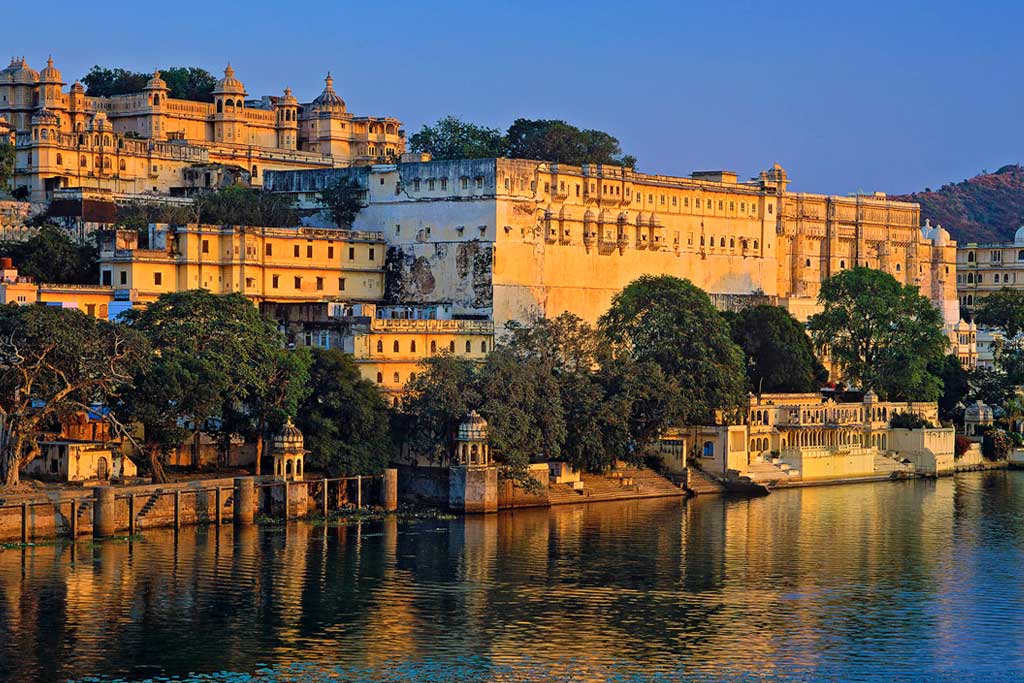
The City Palace towers over the Pichola Lake. The balconies, cupolas and towers of the palace give a wonderful view of the lake and the surrounding city. This complex actually consists of four major and several minor palaces that collectively form the magnificent City Palace. The main part of the palace is now preserved as a museum displaying ancient artefacts.

Now a hotel, The Lake Palace was originally called Jag Niwas Palace and served as a summer palace. Built between 1743 and 1746 on the island near Jagmandir Palace in Lake Pichola, the palace, which faces east, is a wondrous sight to behold. The walls made of black and white marbles are adorned by semi-precious stones and ornamented niches. Gardens, fountains, pillared terraces and columns line its courtyards.
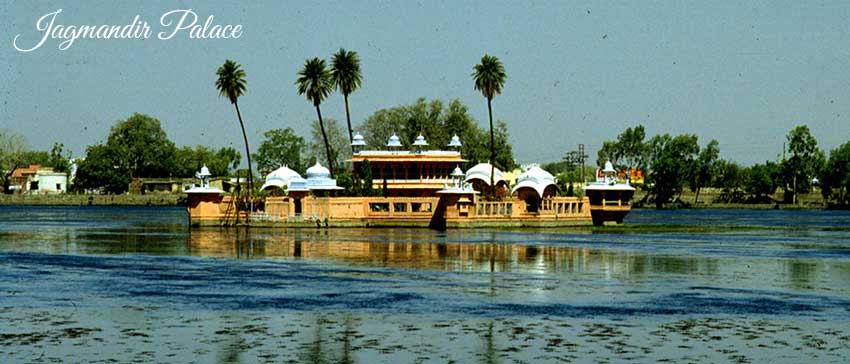
Jag Mandir is a palace built on an island on the Lake Pichola. Also called the ‘Lake Garden Palace’, the construction for this began in 1551 and was completed around 1652. The royal family used the palace as its summer resort and for hosting parties. Interestingly, Prince Khurram – later Emperor Shah Jahan – was given shelter here when he rebelled against his father Emperor Jahangir. The palace had such an impact on Emperor Shah Jahan that it went on to become the inspiration for one of the most magnificent Wonders of the World, the Taj Mahal.
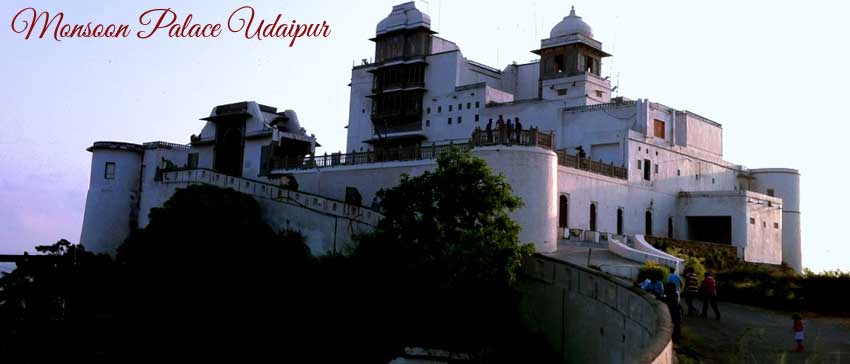
Situated just outside Udaipur, this 19th century palace is built on top of Bansdara Mountain. Used as a monsoon palace and hunting lodge, its builder, Maharana Sajjan Singh, originally planned to make it an astronomical centre. The plan was cancelled with Maharana Sajjan Singh’s premature death. It is still an awe-inspiring sight on the Udaipur skyline and offers spectacular views of the city and the areas around.
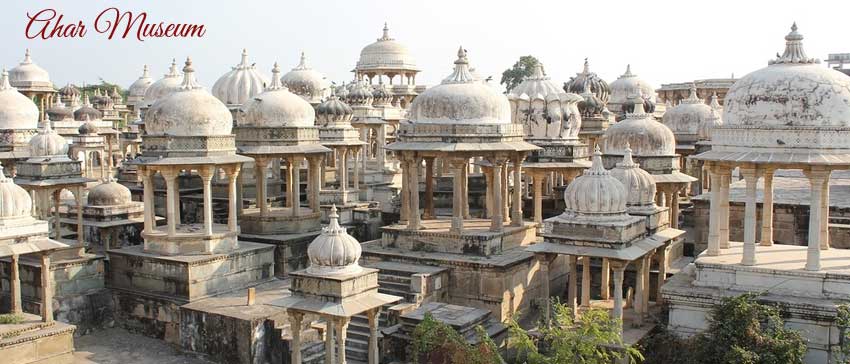
Ahar Museum is in close proximity to an impressive cluster of cenotaphs of the Maharanas of Mewar. The museum has a small, but rare collection of earthen pottery. You can also browse through sculptures and archaeological finds, a few dating back to 1700 BC. A 10th century metal figure of Buddha is a special attraction here.
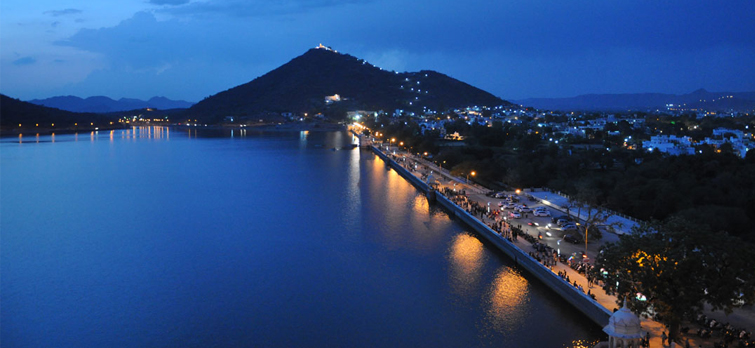
This delightful lake, bordered by hills and woodlands, lies to the north of Lake Pichola. This artificial lake is connected to Lake Pichola by a canal. The lake houses the beautiful Nehru Island as well as an islet on which stands the Udaipur Solar Observatory. It was inaugurated by the Duke of Connaught and was initially called Connaught Bundh.
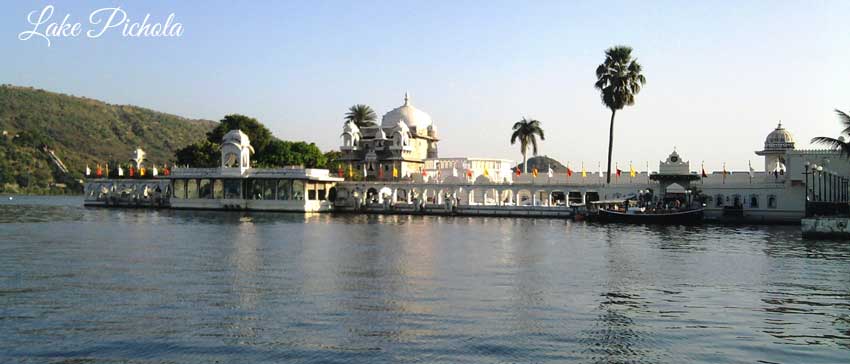
Pichola was the name of a village that was submerged and lent its name to the lake when it was expanded. The islands of Jag Niwas and Jag Mandir as housed in this lake. Along the eastern banks of the lake lies the City Palace. A boat ride in the lake around sunset offers a breathtaking view of the Lake and City Palaces.
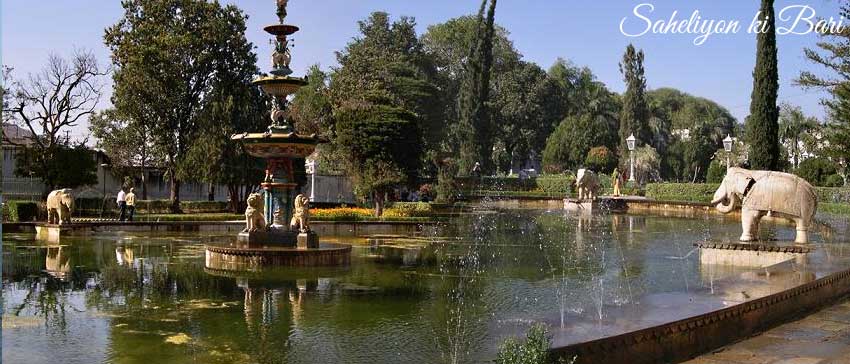
Built by Rana Sangram Singh as a garden for women, Saheliyo-ki-Bari or the Courtyard of the Maidens is a popular tourist destination. Along with a small museum, it has several attractions such as marble elephants, fountains, kiosks and a lotus pool.
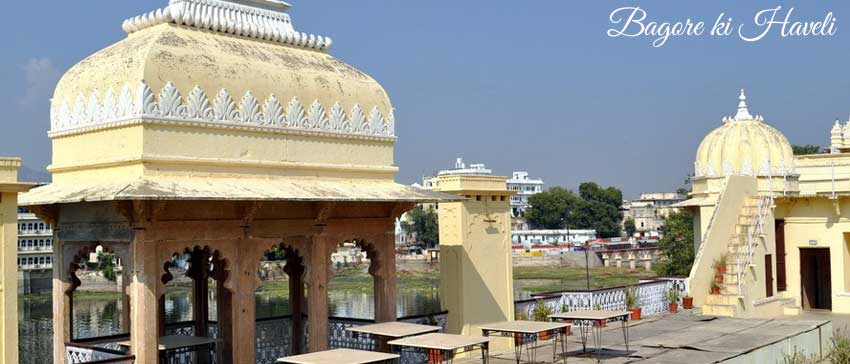
Haldighati is a famed mountain pass in the hills of the Aravalli Range. The pass, about 40 kilometres from Udaipur, connects the districts of Rajsamand and Pali. The pass gets its name from the yellow-coloured soil of the region (turmeric is called haldi in Hindi).
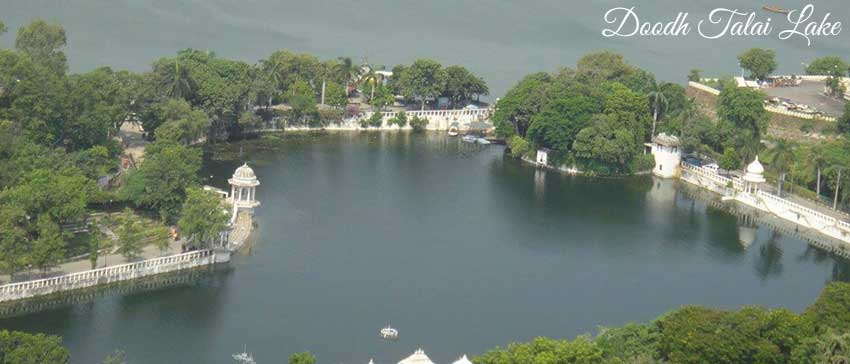
The road that takes visitors to Pichola Lake has another popular destination – the Doodh Talai Lake. The lake is nestled between several small hillocks which themselves are tourist attractions. The Deen Dayal Upadhyay Park and the Manikya Lal Verma Garden are part of the Doodh Talai Lake Garden.

Bagore-ki-Haveli is located by Lake Pichola, at Gangaur Ghat. Amar Chand Badwa, the Prime Minister of Mewar, built it in the 18th century. The massive palace has over a hundred rooms that display costumes and modern art. The glass and mirrors in the interiors are structured in classical haveli style.
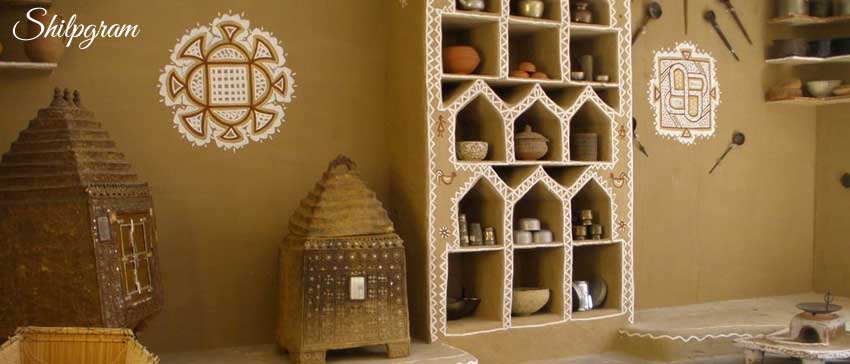
Situated 7 kms west of Udaipur near Lake Fateh Sagar is the Centre’s Shilpgram – the Rural Arts and Crafts Complex. Spread over 70 acres, and surrounded by the Aravallis, the Rural Arts and Crafts Complex has been conceived as a living museum to depict the lifestyles of the folk and tribal people of the west zone.
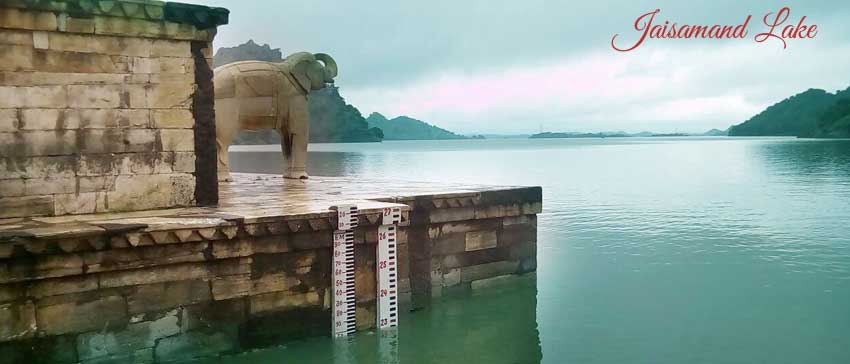
Jaisamand Lake is known for being the second largest man-made sweet water lake in Asia. It is popular among the locals as a weekend picnic destination. Locals say that the lake was constructed to halt the waters of Ruparel River. This lake boasts of a large island, which is home to various species of birds, at its centre.
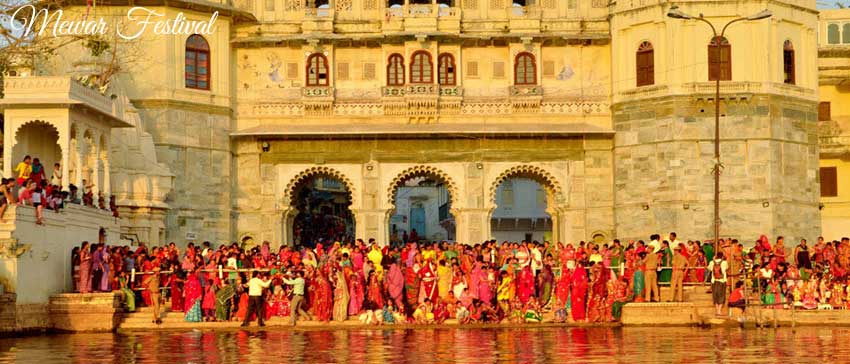
To experience the colour and joy that fills the people of Rajasthan, visiting Udaipur during the Mewar festival is a highly recommended experience. The festival is observed to welcome the arrival of spring.
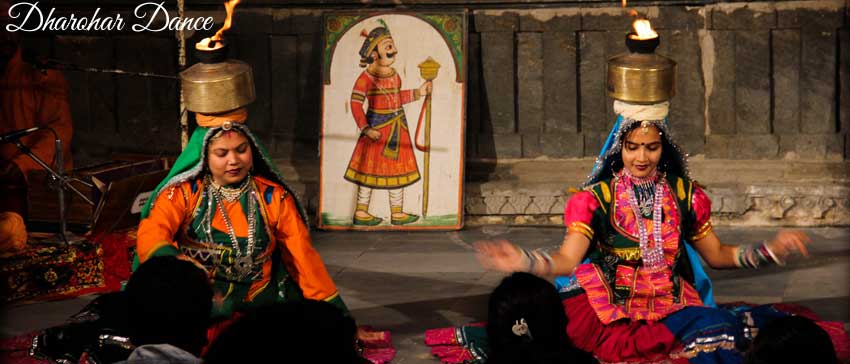
Bagore Dance Show (officially called Dharohar), at Neem Chowk, is a joyous melange of good ambience, music and performances. Comfortable seating, beautifully lit balconies and the star-lit sky ensure that a wonderful evening is spent here.
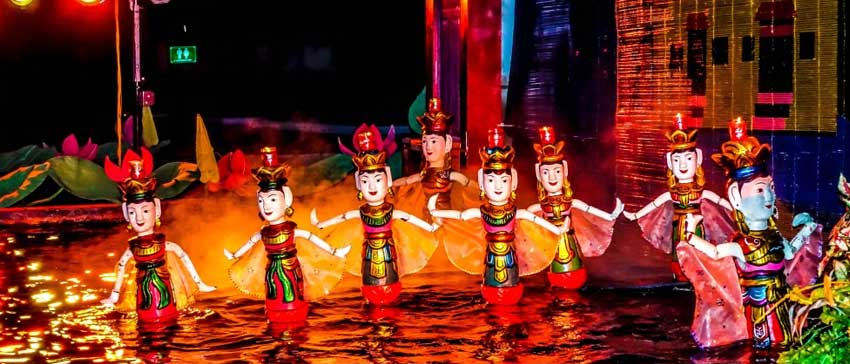
Enjoy the traditional art form of puppetry (Kathputli) at Bharatiya Lok Kala Mandal.
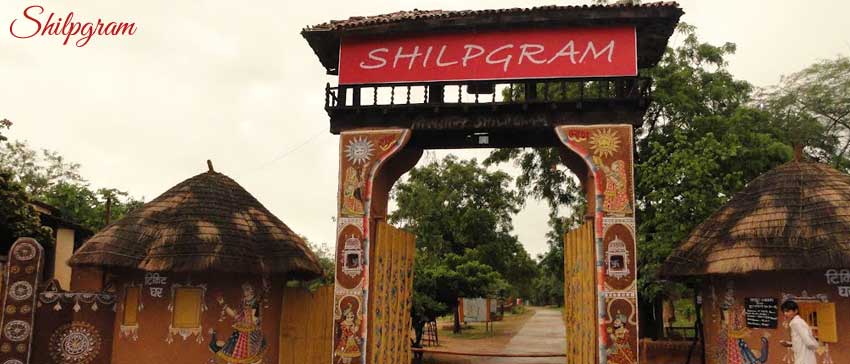
Surrounded by the Aravallis range and spread over 70 acres, the Rural Arts and Crafts Complex is considered a living museum. It is situated 3 km west of Udaipur and depicts the lifestyles of the tribal people and folk of the west zone.
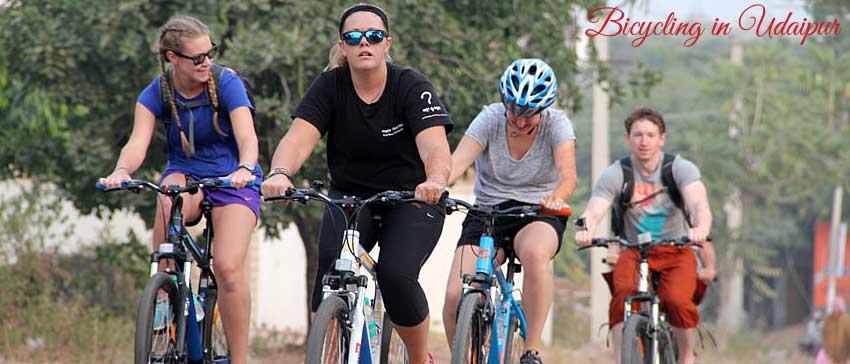
Pick cycling as your mode of transport and experience the vibrant culture more closely. Marvel at the architectural grandeur that surrounds the lake city of Udaipur, as you ride by the picturesque Lake Pichola. What’s more, the lush hills of Mount Abu offer a great adrenaline rush to the adventurous spirit in you. A well planned bicycle tour lets you explore the rich countryside at your own pace.
info@rajasthantourismbureau.com
+91-9928026027 / +91-141-6783026